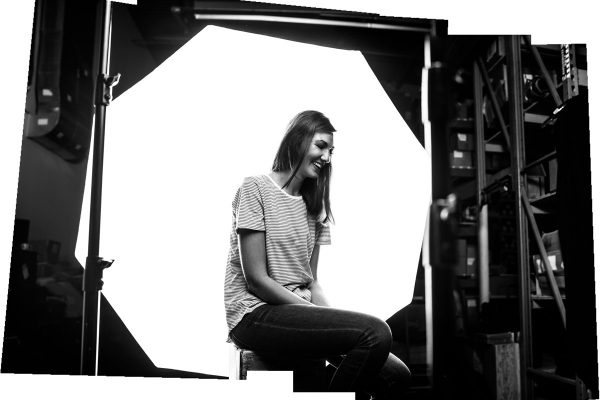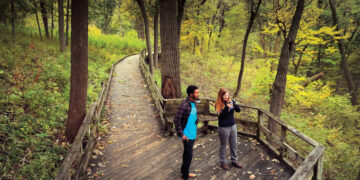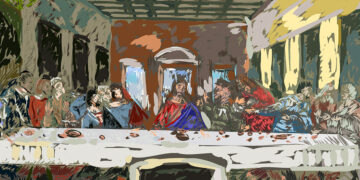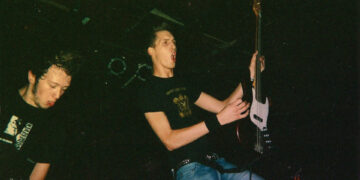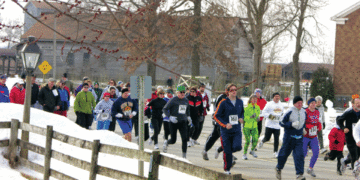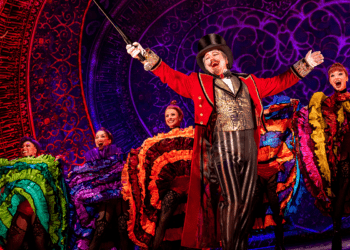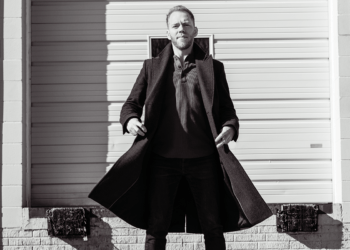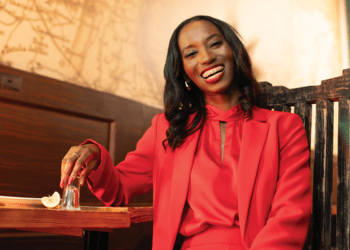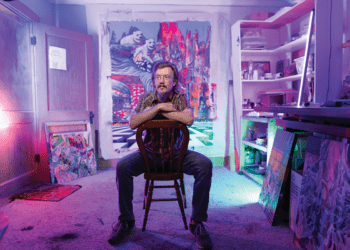Lauren Martin was a small-town farm girl from McCook, Nebraska. She loved country music and never expected she would one day lead Maha—Nebraska’s pre-eminent annual music festival.
On Aug. 19, Martin oversees one of Maha’s boldest lineups ever. Headlined by the controversial hip-hop group Run The Jewels, Maha 2017 is poised to be one huge spectacle that promises to bring together a diverse group of concert-goers.
That kind of unity through music drives Martin, who got her first taste of it when she was a college student working on the campus program council at the University of Nebraska-Lincoln. “All of the sudden, I realized my favorite thing was to bring people together around experiences,” says Martin, who was named Maha’s first executive director in 2015.
While attending UNL, Martin helped bring such performers as singer-songwriter Jason Mraz and comedian Kathy Griffin to the university. After graduating, she wanted to continue exploring a career of booking musical talent. Martin interned at Omaha-based Saddle Creek Records in 2007. The following summer, she found herself working at Live Nation, a global entertainment company in St. Louis. However, the Great Recession of 2008 cut her career plans short, forcing her to move back home and assess her future in the music industry.
“I came back to Omaha and felt like a dog with my tail between my legs because I failed—or because I couldn’t hack it—whatever it was” Martin says.
In 2009, Maha was born, and Martin took interest. Over the next few years, she wore many hats, including working as a house manager at Omaha Performing Arts and as programming director at Hear Nebraska. In 2012, she was given the reins to Maha’s social media accounts. She was also named to Maha’s board of directors that same year, eventually serving as vice president.
As she continued to work with Maha, Martin’s view of music changed, especially how it can affect people and bring them together. This feeling and sense of community is something she continues to incorporate into Maha.
“Now I realize music is something we all share, and it has a power to connect. It’s everything from a release, to a way to express yourself,” she says. “And while I myself am not a musician, I find that music helps me process things. It helps me connect with other people. It’s a passion in a way that music is an avenue for my fulfillment.”
Martin also worked in communications at the Omaha Community Foundation, where she helped implement Omaha Gives!, a 24-hour charity event aimed at raising moneyrfor nonprofits.
Then, in 2015, something big happened—Maha sold out for the first time, thanks in large part to a phenomenal lineup that included Modest Mouse and Purity Ring.
“It caused everyone involved with Maha to realize that, if we want the event to continue and really be sustainable and see what even further impact we could have on the community, we needed someone full-time. That’s when I became the executive director,” Martin says.
She also emphasized that the popular festival, currently held at Stinson Park in Aksarben Village, is much more than music. The event serves as a medium for other nonprofits to receive attention.
“It’s about raising awareness,” she says, “not forcing anyone to learn about something or expose them to potential trigger topics.”
For example, this year the festival will have information about suicide, the second-leading cause of death for people ages 15 to 34 in the U.S. Martin says the majority of Maha’s demographic falls in this age range.
“Maha is more than a music festival. It’s a platform for engagement,” she says. “We realized not only can we be a platform for other organizations, but we can help spread education.”
Martin adds that while information is available to event-goers, the staff aren’t trying to make attendees uncomfortable. “Because that isn’t the intent of anyone,” she says. “We’re not impacting the experience by throwing mental health in your face,” Martin says. “We’re not scared to talk about this. We want to be an organization that is listening to what is going on in our community.”
In addition to providing mental health information, other nonprofits team up with Maha as part of its community to culture and social activities.
This year Maha has again partnered with Louder Than a Bomb, an annual youth poetry slam with roots in Chicago that focuses on bringing teens together across all divides. The group was recently the subject of an award-winning documentary of the same name.
Another repeat partner is Omaha Girls Rock, a nonprofit that typically draws plenty of attention. The group empowers young women to voice creativity through music education and performance. In general, to “rock.”
“Maha is an event that connects and reflects the community,” Martin says. “In that kind of structure, you get to walk away saying ‘Omaha’s got some really cool stuff going on.’”
As Maha continues to grow, Martin says people are getting even more out of the music festival. To this date, the event has drawn music fans from 46 states, according to its website.
“While the music is seemingly the main event, you come to Maha and get so much more than that,” Martin says. “I thought I was getting involved with Maha for the music, but what kept me involved with Maha was all the people I’ve gotten to meet.”
Visit mahamusicfestival.com for more information.
This article appears in the July/August 2017 edition of Encounter.
